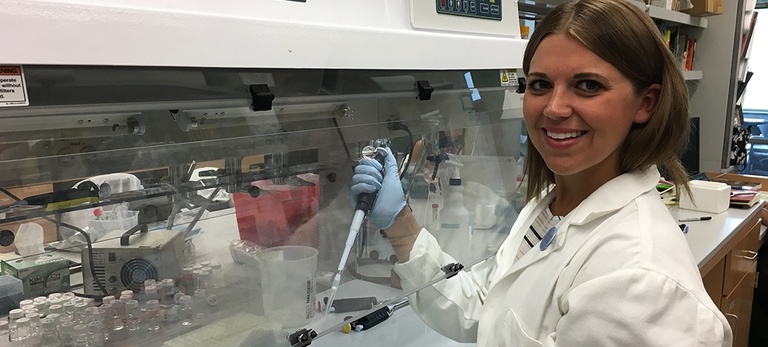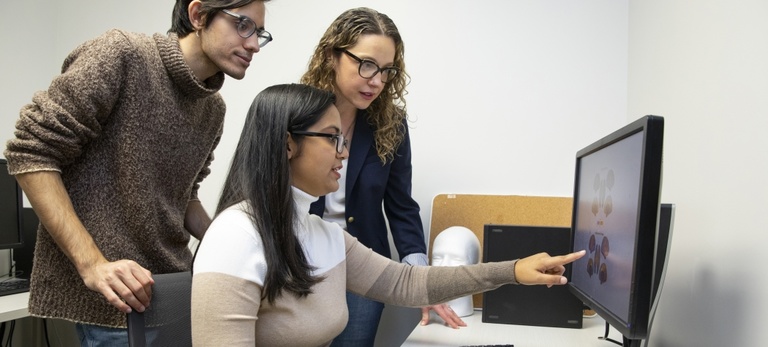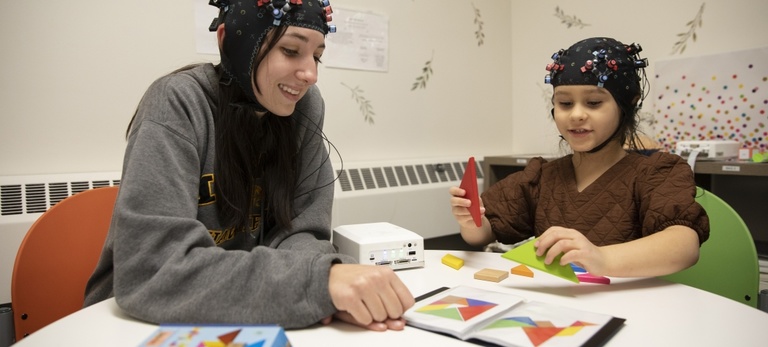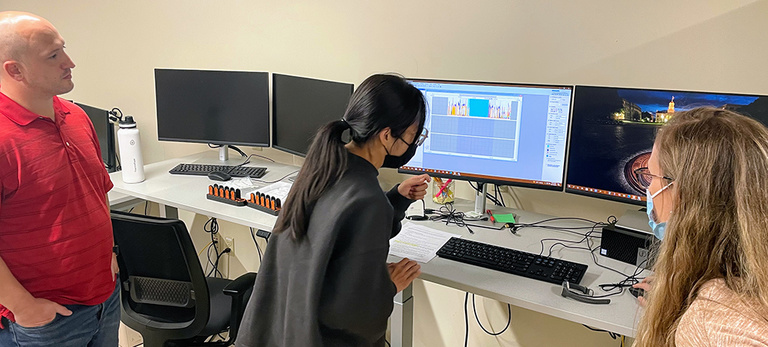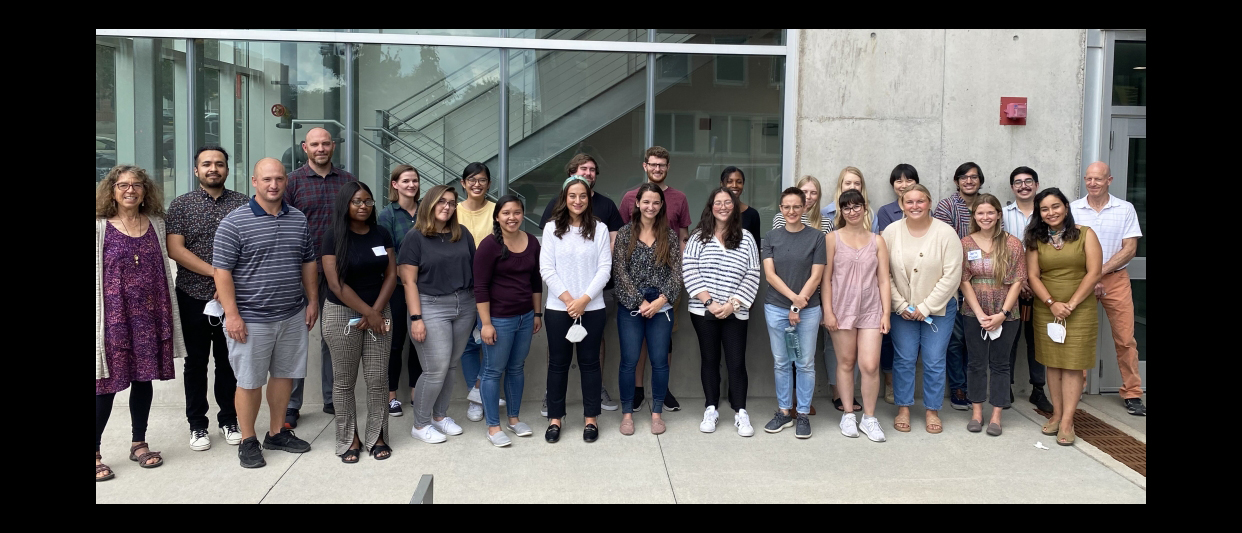
Behavioral-Biomedical Interface Training Program
The University of Iowa offers a special interdisciplinary research training program for pre-doctoral students in Psychology called the Behavioral-Biomedical Interface Training Program (BBIP).
BBIP is supported in part by a National Institutes of Health T32 pre-doctoral research training grant T32GM108540 from the National Institute of General Medical Sciences. The program—Mechanisms of Health and Disease at the Behavioral-Biomedical Interface—aims to teach the next generation of behavioral science researchers how to utilize biomedical methodologies and conceptual frameworks for making breakthroughs in understanding both health and behavior. Students in the program are graduate students in the Department of Psychological and Brain Sciences at the University of Iowa.
Students admitted to the training program are eligible to apply for funding under the training grant mechanism. Mentors include faculty from the Department of Psychological & Brain Sciences, the College of Public Health, and the UI Carver College of Medicine, with Susan Lutgendorf, Ph.D., and Michelle Voss, Ph.D., as directors, and Daniel Tranel, Ph.D., as Co-director.
Diversity
The Behavioral Biomedical Interface Training Program (BBIP) strives to achieve an open and supportive learning environment in which all members of our community feel welcome. We are committed to equal opportunity and diversity, including a commitment to students with disabilities and from underrepresented groups. We affirm our opposition to the systemic injustices against Black, Indigenous, and People of Color (BIPOC) in our society. We acknowledge the urgent need to address ongoing disparities including the underrepresentation of Black and BIPOC students and faculty in our program and in our Department and the need to enhance diversity in these settings. Our work is grounded in the importance of launching the careers of Black and BIPOC students so they can contribute to society in careers at the Behavioral-Biomedical interface. This will have an impact at the societal level, and is crucial for the enhancement of our field.
We are actively working with the Department of Psychological and Brain Sciences and the Neuroscience Program to enhance recruitment of diverse students to our program. We are also working with the Office of Graduate Inclusion to foster a welcoming environment and to support the activities of diverse students. Additionally, we are enhancing exposure to Black and BIPOC scientists as speakers in our seminar to provide role models and mentoring for our students in addition to exposure to their research. Diversity is a fundamental component of the University of Iowa's research and education goals. Diversity among students, faculty and staff provides a richer education for all students, and contributes to a more well-rounded training experience.
UI Non-Discrimination Statement: The University of Iowa prohibits discrimination in employment, educational programs, and activities on the basis of race, creed, color, religion, national origin, age, sex, pregnancy, disability, genetic information, status as a U.S. veteran, service in the U.S. military, sexual orientation, gender identity, associational preferences, or any other classification that deprives the person of consideration as an individual. The University also affirms its commitment to providing equal opportunities and equal access to University facilities.
News and Announcements

